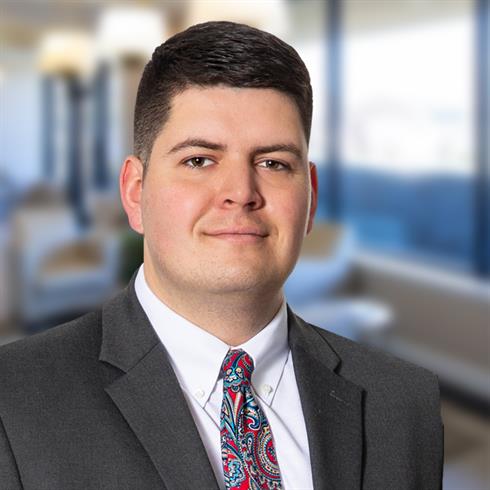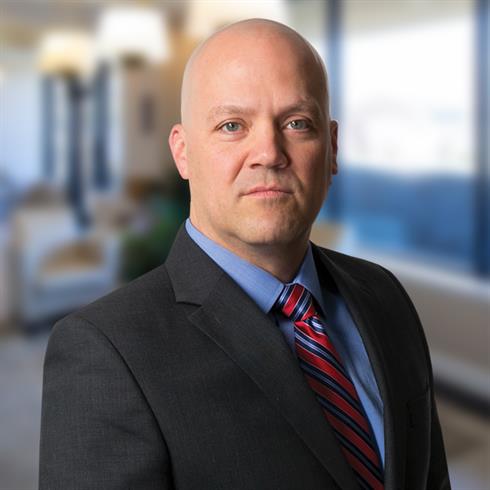JONESBORO
OUR LAWYERS ARE HERE TO LISTEN
Secure Your Future & Request
A 100% Free Consultation
IF YOU STILL HAVE QUESTIONS, PLEASE CLICK BELOW TO VISIT OUR FAQ SECTION, OR CALL US AT 800-671-4100 TODAY.
Approximately 17.5% of adults suffer from functional limitations that make working or performing regular daily tasks difficult. These disabling conditions are relatively common, and Social Security Disability benefits can help individuals who cannot work because of their disabilities.
Social Security, however, makes obtaining benefits difficult and complex. Without a lawyer, it can take months or years before Social Security approves or denies your SSD claim.
A Jonesboro Social Security Disability lawyer can help you get through this complicated process to help you reach approval faster.
If your disability prevents you from working and earning an income and you’ve worked enough “quarters” (and earned enough income) to qualify for Social Security retirement benefits, you may also qualify for Social Security Disability. Contact Caddell Reynolds Law Firm to learn more.
Jonesboro Social Security Disability Lawyer Guide
- How Are the Programs Funded?
- What Benefits Are Available?
- Why Was I Denied SSI or SSD?
- What Can I Do if My SSD or SSI Application is Denied?
- Contact the Jonesboro Social Security Disability Lawyers at Caddell Reynolds Today
Social Security Disability vs. Supplemental Security Income

Both Social Security Disability (SSD) and Social Security Income (SSI) programs provide financial assistance to individuals with disabilities.
SSD (also called Social Security Disability Insurance, or SSDI) is an earned benefit based on your work history and Social Security tax contributions, while SSI is a needs-based program for individuals with limited income and resources.
Here’s a closer look at the two programs:
Social Security Disability
- SSDI is a federal insurance program funded through payroll taxes.
- It provides benefits to individuals who have worked long enough and paid Social Security taxes.
- To qualify, you must have a medical condition that meets the Social Security Administration’s definition of disability and have worked long enough to earn sufficient work credits.
- The monthly benefit amount is based on your average lifetime earnings before your disability began.
Supplemental Security Income
![]()
- SSI is a federal assistance program funded by general tax revenues, not Social Security taxes.
- It provides benefits to individuals with limited income and resources who are disabled, blind, or age 65 or older.
- To qualify, you must have limited income and resources and have a medical condition that meets the Social Security Administration’s definition of disability.
- The monthly benefit amount is based on the Federal Benefit Rate and may be supplemented by your state.
How Are the Programs Funded?

SSD and SSI have two different sources of funding. SSD is funded by the FICA or self-employment (SE) tax. If you work for someone else, you pay into Social Security and Medicare through FICA taxes, which are reflected on your paystub. If you’re self-employed, you pay into those programs through the SE tax.
In contrast, the U.S. funds SSI out of general federal revenues.
This may seem like a minor technicality, but it can help keep the two programs straight. SSD is insurance—a person can only benefit from it if they have paid premiums (in the form of FICA or SE taxes).
SSI is more like a traditional welfare program: It’s available for anyone who needs it, whether they’ve paid towards the benefits or not.
Eligibility for SSI and SSD
To qualify for SSI, a person must:

- Be at least 65 years old, blind, or disabled;
- Have limited income;
- Have limited resources; and
- Apply for any other cash benefits or payments for which they may be eligible.
To qualify for SSD, a person must:
- Be disabled; and
- Have worked a sufficient amount of time before becoming disabled.
Eligibility Similarities

For adults, the definition of disabled is the same across the two programs. Under either program, a disability is a severe medical condition that prevents a person from performing any substantial gainful activity, and that has lasted, or can be expected to last, for at least one year or that can be expected to result in death.
What is a severe medical condition? The SSA maintains a list of conditions that automatically qualify. A condition not included on the list may still qualify if its severity is equivalent to a listed condition.
Note that built into the definition of “disability” is a limit on income, because “substantial gainful activity” is defined in terms of monthly earnings. For a non-blind disabled individual, this limit is generally $1,180 per month for 2018, whether the individual applies for SSD or SSI.
Major Eligibility Differences

Income and property limits. To qualify for SSI, a person’s income must be below a further income limit. The SSI-specific income limit is in addition to the “substantial gainful activity” limit discussed above. The type of income a person receives can affect how much they can earn each month, and not all income counts towards the limit.
Additionally, SSI imposes another limit on how much property a person can own and still qualify for the program. The property limit is $2,000 for an individual and $3,000 for a married couple, but not all property is counted. For example, a person’s home does not count toward the property limit.
In contrast, the only income limit for SSD comes from the definition of “substantial gainful activity,” and it does not have a property limit.

A person can only qualify for SSD if they have earned sufficient work credits. Work credits are earned by working and paying Social Security taxes, through either the FICA or SE tax. A person can earn up to four credits per year, and the number of credits a person needs to qualify for SSD depends on the age at which they became disabled.
On the other hand, a person can qualify for SSI regardless of his or her work experience.
What Benefits Are Available?

Both SSD and SSI provide monthly payments for individuals who are approved for the programs. Under SSI, an eligible individual can receive up to $943 per month, and eligible couples can receive up to $1,415 per month, in 2024. However, these are the maximum monthly amounts available under SSI, and may be reduced depending on an individual’s or couple’s other income.
How much a disabled worker can receive under SSD depends on their past earnings. The average SSD recipient receives between $800 and $1,500 per month, but the maximum monthly SSD benefit is more than double that amount—$3,822 per month.
In addition, SSD may provide family benefits for a disabled worker’s family members. Any family benefits are in addition to what the worker receives, and do not reduce their benefits. In contrast, SSI does not provide family benefits.
Why Was I Denied SSI or SSD?
There are several reasons why people may be denied Social Security Disability (SSD) or Supplemental Security Income (SSI) benefits.
Some common reasons include:

- Insufficient work credits (for SSD): To qualify for SSD, you must have worked long enough and recently enough to earn the required work credits. If you don’t have enough credits, your application may be denied.
- Income and resources (for SSI): If your income or resources exceed the limits set by the Social Security Administration (SSA), you may not be eligible for SSI.
- Not meeting the SSA’s definition of disability: The SSA has a strict definition of disability. If your medical condition is not severe enough or is not expected to last at least 12 months or result in death, your application may be denied.
- Lack of medical evidence: If you don’t provide sufficient medical evidence to support your disability claim, the SSA may deny your application.
- Failure to follow prescribed treatment: If you fail to follow the treatment prescribed by your healthcare provider without a good reason, the SSA may deny your claim.
- Engaging in substantial gainful activity (SGA): If you are working and earning above a certain amount (known as SGA), you may not qualify for disability benefits.
- Drug or alcohol addiction: If drug or alcohol addiction is a contributing factor to your disability, you may be denied benefits unless you can prove that you would still be disabled even if you stopped using drugs or alcohol.
- Failure to cooperate: If you fail to provide the SSA with the necessary information or don’t attend scheduled medical exams or interviews, your application may be denied.
If your SSD or SSI application is denied, it’s essential to understand the reason for the denial and consider appealing the decision with the help of a qualified Jonesboro Social Security Disability lawyer at Caddell Reynolds.
What Can I Do if My SSD or SSI Application is Denied?
If your SSD or SSI application is denied, you have the right to appeal the decision.
The appeals process has four levels:

- Reconsideration: This is a complete review of your claim by someone who did not take part in the first decision. You must request a reconsideration within 60 days of receiving the denial notice.
- Hearing by an Administrative Law Judge (ALJ): If your claim is denied at the reconsideration level, you can request a hearing before an ALJ. You’ll have the opportunity to present evidence and testimony to support your case. You must request a hearing within 60 days of receiving the reconsideration denial notice.
- Review by the Appeals Council: If you disagree with the ALJ’s decision, you can request a review by the Social Security Appeals Council. The Appeals Council may deny your request if it believes the ALJ’s decision was correct, or it may review your case and issue its own decision. You must request a review within 60 days of receiving the ALJ’s decision.
- Federal Court review: If you disagree with the Appeals Council’s decision, or if the Appeals Council decides not to review your case, you can file a lawsuit in Federal District Court. You must file this lawsuit within 60 days of receiving the Appeals Council’s decision or denial of review.

It’s highly recommended that you work with an experienced Jonesboro Social Security Disability lawyer, such as those at Caddell Reynolds, to help you navigate the appeals process. A skilled attorney can help you gather evidence, prepare for hearings, and present the strongest possible case to improve your chances of success.
Remember, it’s crucial to meet all deadlines and submit any requested information promptly to avoid jeopardizing your appeal. A knowledgeable Social Security Disability lawyer can guide you through each step of the process and protect your rights along the way.
Contact the Jonesboro Social Security Disability Lawyers at Caddell Reynolds Today

SSI and SSD are both programs with complex rules governing who qualifies for them. Whether it’s the income and resource limits of SSI or the work-credit requirements of SSD, understanding, planning for, and complying with these rules is critical to receiving the benefits you need.
At Caddell Reynolds Law Firm, our personal injury lawyers in Jonesboro help residents apply for SSI or SSD benefits. We can assist you in understanding what programs you may be eligible for and how to apply for them, and we work diligently to gather evidence supporting your application and speed up the entire process.
If you are unable to work and are interested in exploring SSD or SSI programs, contact us today at (870) 410-4681 or through our online form to discuss your eligibility and options.
Caddell Reynolds Law Firm – Jonesboro Office
740 Southwest Dr, Jonesboro, AR 72401
WHY CHOOSE US?
If You Have Been Injured, We Are Here for You
AVAILABLE FOR HOME & HOSPITAL VISITS IF YOU CANNOT TRAVEL
CLEAR & CONSISTENT COMMUNICATION THROUGHOUT THE PROCESS
AVAILABLE TO ANSWER YOUR CALLS & EMAILS 24/7
COMMITTED TO MAXIMIZING THE RECOVERY YOU DESERVE
HUNDREDS OF MILLIONS OF DOLLARS RECOVERED FOR OUR CLIENTS
OVER 100 YEARS OF COMBINED LEGAL EXPERIENCE
AVAILABLE TO ANSWER YOUR CALLS & EMAILS 24/7
CLEAR & CONSISTENT COMMUNICATION THROUGHOUT THE PROCESS
AVAILABLE FOR HOME & HOSPITAL VISITS IF YOU CANNOT TRAVEL
COMMITTED TO MAXIMIZING THE RECOVERY YOU DESERVE
HUNDREDS OF MILLIONS OF DOLLARS RECOVERED FOR OUR CLIENTS
OVER 100 YEARS OF COMBINED LEGAL EXPERIENCE

